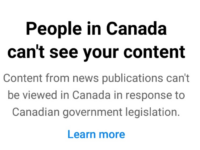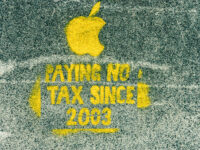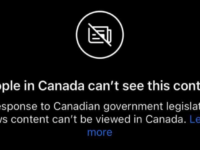Blocking of news links on Facebook and Instagram in Canada has becomes increasingly widespread in recent days, leading to a growing number of public comments from media outlets and reporters expressing surprise or shock about the scope of the link blocking. Indeed, outlets with blocked links include university student newspapers, radio stations, and foreign news outlets. While there may have been some errors (Facebook has a page to seek review of any blocked link decision), the inclusion of a very wide range of Canadian and foreign news outlets is no accident. Rather, it reflects the government’s Bill C-18 approach, which effectively covers all news outlets worldwide whose links are accessed in Canada. The Canadian government could have adopted a more targeted approach – for example, limiting the scope to news links from those news outlets eligible to negotiate agreements with Internet platforms under the law – but it instead went for the broadest possible approach that includes foreign news outlets with little or no connection to Canada.
 Articles by: Michael Geist
Articles by: Michael Geist
It’s Complicated: Unpacking the Risks Behind Canada’s Digital Services Tax Plan
The Canadian government released a detailed document last week outlining the specifics behind its draft Digital Services Tax Act. No actual legislation has yet been passed, but the government is providing guidance on how the potential law would be interpreted assuming it takes effect next year. The document has sparked criticism from business groups and the U.S. government given that it envisions a retroactive three percent tax that will hit a wide range of businesses. Further, the Canadian plan is facing significant opposition from many OECD countries since it may jeopardize a global agreement that is designed to address the digital services tax issue. While the digital services tax (DST) is typically framed as a tax on big tech, the reality is that the Canadian version extends far beyond just companies such as Google and Facebook, potentially including major Canadian retailers such as Canadian Tire, Loblaws, and others.
My view is that unlike Bills C-11 and C-18, which create cross-industry subsidy models funded by tech companies to support government policy, appropriate taxation models is the far better approach to ensure that companies “pay their fair share”. While a DST may be a good approach (particularly if part of a global system), the Canadian plan to implement the tax retroactively next year creates some significant risks. In fact, our current approach raises the prospect of U.S. tariff retaliation, opposition from many allies at the OECD, and expanded news link blocking in response to Bill C-18.











